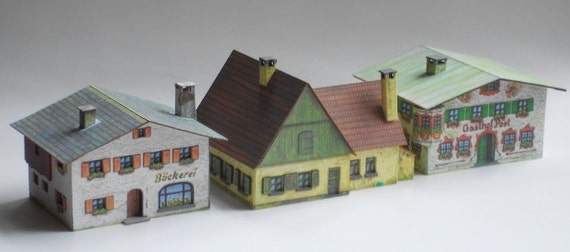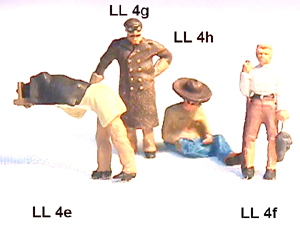
The Harold Lloyd sign on the top may seem unlikely -- why have a painted sign for a movie that might only run a few weeks? -- but it is based on an actual sign re-discovered a few years ago in Vancouver, B.C. when another building was torn down.
Seems the theater owner knew a building was going up and decided he could splash out with a painted sign. I changed a few things like the theater name and some colors, but I tried to match the fonts fairly closely.
The second is my very liberal interpretation of an actual sign; the real sign used much less decorative fonts. This is always a decision you get to make when you're designing -- do I want it to look authentically old-time, or should I go for more of a modern idea of what "old-timey" is supposed to look like? Generally, the past was less fancy than we think, but sometimes I throw reality to the wind, because I like to fool around with fonts.
Here is how they look when I drop them on top of the Clever Models texture and lower the opacity of the sign layer.
If I'm modeling a later era, I can lower the opacity still more to simulate further fading.
I got to fooling around with this, and decided I wanted to create the effect of a recently painted wall, which would make sense with that Harold Lloyd sign, since it was only supposed to be visible for a short time. Creating this effect is tricky using this technique -- by the time you drop the opacity just enough to see the wall (around 75% to 80%) you've created the illusion the paint has faded for quite a number of years. But it's not impossible. The first step of the workaround is this:
(1) Copy two parts of the brick background that correspond to the areas covered by the painted signs, and (2) paste them as a new layer. Then (3) desaturate the colors to bring them down to greyscale, (4) invert them to make the dark areas light and light areas dark, and finally (5) adjust the brightness and contrast to make the shadows really pop.
Now when you make the translucent sign layer visible on top of this "white paint," it causes the the whites and light colors appear freshly painted, but you can still see a brick texture through them.
Naturally, all this works with Photoshop, too.












